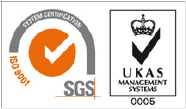If you are looking for a way to manufacture your parts with precision, you should consider CNC precision engineering services. This method can provide several advantages, including a High level of automation, High-quality components, Flexible product development, and Automated manufacturing
High-level automation
High-level automation in CNC precision engineering can streamline the production process and cut down on personnel costs. Automated CNC processes can execute complex tasks by condensing several asynchronous procedures into a single seamless line. These automated processes reduce the processing time of individual pieces while requiring minimal oversight and maintenance.
Automated machinery can benefit many manufacturing industries. Mechanical production methods can improve productivity and increase ROI by cutting labour costs. Increasing automation levels may involve large-scale modifications to manufacturing processes. However, if not implemented correctly, the process can negatively affect a company and its bottom line.
High-quality parts
Precision engineering is necessary for aircraft, spacecraft, and other parts. These parts must function correctly and must be made of high-quality materials. Metals commonly used for aerospace components include titanium and Kovar, but other materials may be used, including aluminium, stainless steel, copper, bronze, and some types of plastic. Because of the demanding nature of these parts, CNC machining aerospace parts must meet strict standards and adhere to the most exacting tolerances.
Another advantage of CNC precision engineering is its safety benefits. CNC precision engineering replaces manual machining processes such as lathes and vertical millers. Instead, CNC machines work by converting CAD models to mass-produced parts. These machines are equipped with multiple cutting tools to remove material from a solid block without putting workers at risk.
Flexible product-development
Precision machining is a valuable resource for flexible product development. CNC services provide high-quality precision and process reliability. Integrated CAD/CAM solutions make it easier to meet production requirements. In addition to meeting the needs of production, these solutions allow product-development teams to develop prototyping and testing processes. Whether the product requires a complex mechanical design or a simple electronic component, CNC solutions can meet these needs.
The advantages of CNC machining technology are numerous. With advanced software, designing parts and ensuring structural integrity becomes easier. CNC machining also facilitates rapid prototyping. Precision manufacturing companies use automated processes and reduce manual labour, providing greater flexibility to their clients and lower costs.
Automated manufacturing
CNC precision engineering processes make repetitive production possible. CNC machines can deliver precision to 1/1000th of an inch, which means the end design remains consistent no matter how many of them are produced. Furthermore, CNC introduces design fidelity into the manufacturing process, allowing manufacturers to keep the original design of a prototype and refer to the data when restarting the process. It is one of the most significant benefits of CNC precision engineering.
The process of machining can be complicated. Long stringy chips will wrap around the machine’s tool for some materials, requiring costly repair. Further, a faulty step can cause a line to stop and require a massive rework. Therefore, full automation requires technology that monitors the entire process. It is essential to establish clear roles for workers and watch the whole process. Automation also reduces the cost of products.
